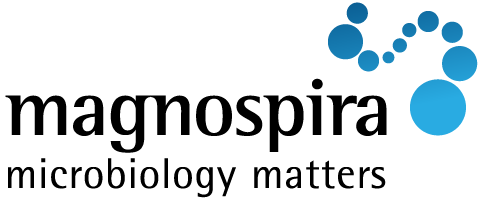The hidden risks and the better alternatives
In recent years, awareness of the importance of the microbiome in our bodies has increased significantly. Nevertheless, many people continue to use products and methods that are more harmful than helpful.
A prominent example of this is the use of alcohol-based mouthwashes, which are designed to eliminate bacteria in the oral cavity. A new study now shows that daily use of an alcohol-based mouthwash like Listerine can have harmful effects on the oral microbiome and health.
The root of the problem: fear of bacteria
Our society is fundamentally sceptical about bacteria. From an early age, we are taught that we must wash our hands, that we must not play in the dirt and that we must not put dirty clothes on or in our mouths. In short: bacteria are the cause of diseases.
Even though we know that the scientific basis for these statements has completely changed, this earliest imprint is still present in us. Our neural pathways are geared towards negating all messages to the contrary. However, this is also evolutionary. In the Stone Age, in the daily struggle for survival, it was important that we developed an aversion to rotten things. Even if prehistoric man did not yet know what bacteria were, a fundamental aversion to anything that showed signs of bacterial growth tended to prolong life. This has remained in our genes to this day and is reflected in some people’s trypophobia – the fear of irregular shapes, such as a group of different small holes. In the Stone Age, these holes were unconsciously perceived as a symptom of infectious skin diseases, for example, and people, animals or food were avoided as a result.
The mistake of sterilisation
Nowadays, however, thanks to well-stocked supermarkets, a modern sewage system, advanced medicine and other achievements of modern civilisation, daily contact with infectious organisms is rather rare. And as always, the pendulum swings too far: We combine our primal fears with the knowledge of the presence of bacteria and project our fears onto the microorganisms. A fatal mistake.
We concentrate on destroying bacteria rather than promoting bacterial growth. Mouthwashes are a typical example of this. Very few people would say that they are trying to promote bacterial growth in their mouth. Instead, they want to destroy the ‘bad’ bacteria by rinsing with an alcoholic solution, a mouthwash. But this is exactly the wrong approach!
Scientific findings on mouthwashes and the microbiome
A study by the Faculty of Medicine in Antwerp, published in the Journal of Medical Microbiology, investigated the effects of daily use of the mouthwash Listerine Cool Mint on the oral flora of the participants. Unsurprisingly, the alcoholic solution changed the composition of the bacteria. However, primarily ‘good’ bacteria were killed off and more oral opportunistic bacteria were able to establish themselves, i.e. microorganisms that would not have had a chance to survive in a normal, alcohol-free environment. Interestingly, two types of bacteria were particularly successful.
Streptococcus anginosus, which are known to colonise the upper respiratory tract and cause periodontal disease, tooth decay and abscesses. They also occur more frequently in people who have stomach or oesophageal cancer. However, it is unclear whether these bacteria cause the cancer or merely promote it – a typical problem of medical microbiology in distinguishing between cause and effect.
Fusobacterium nucleatum, a bacterium that promotes periodontitis and is increasingly present in dental plaque, was also more prevalent in patients who regularly rinsed their teeth with Listerine.
Even though the study was relatively small with 59 participants, it shows that deliberate sterilisation is generally the wrong approach. Instead of trying to destroy bacteria in the oral cavity, attempts should be made to promote the growth of positive bacteria so that these in turn prevent the growth of ‘bad and pathogenic’ bacteria.
This recommendation generally applies to mouthwashes containing alcohol. However, mouthwashes that do not contain alcohol also interfere with the natural composition of the oral microbiome.
The better alternative: promoting a healthy microbiome
Instead of relying on sterilisation, we should take measures to promote the growth and diversity of healthy bacteria.

Here are some recommendations:
Eat a healthy diet:
Eating a balanced diet rich in fruits and vegetables can help support the oral microbiome. Green vegetables in particular have anti-inflammatory properties that are beneficial for oral health. Cheese can also stimulate saliva flow and prevent tooth decay.
Proper dental hygiene:
Regular brushing (at least twice a day) and flossing (also in the morning and evening) are crucial. Inflamed areas can be dabbed locally with anti-inflammatory agents. However, extensive application should be avoided.
Probiotics:
The use of probiotics specifically designed for oral health can, in principle, help to promote beneficial bacteria in the mouth and restore a healthy balance.
Avoiding sugar:
Sugar is poison. Not just for our oral microbiome, but for our entire body. We are primarily talking about the refined, simple sugars found in sweets and white bread. Reducing sugar consumption helps to inhibit the growth of negative bacteria and promote the health of the oral microbiome.
A paradigm shift
To ensure the long-term health of our mouths, we need to make a paradigm shift in our approach to dental hygiene. Instead of relying on sterilisation, we should take measures that promote the growth and diversity of healthy bacteria. This requires a rethink and a move away from traditional but outdated methods.
A healthy mouth is not achieved by eliminating all bacteria, but by promoting a balanced and diverse microbiota. This requires patience, knowledge and a willingness to break new ground. However, the reward is not only a mouth that is free of disease, but also another important step on the way to a healthy body. (JS)
Further reading:
Laumen, J.G.E., Van Dijck, C., Manoharan-Basil, S.S., de Block, T., Abdellati, S., Xavier, B.B., Malhotra-Kumar, S., & Kenyon, C. (2024). The effect of daily usage of Listerine Cool Mint mouthwash on the oropharyngeal microbiome: a substudy of the PReGo trial. Journal of Medical Microbiology, 73(6). https://doi.org/10.1099/jmm.0.001830



